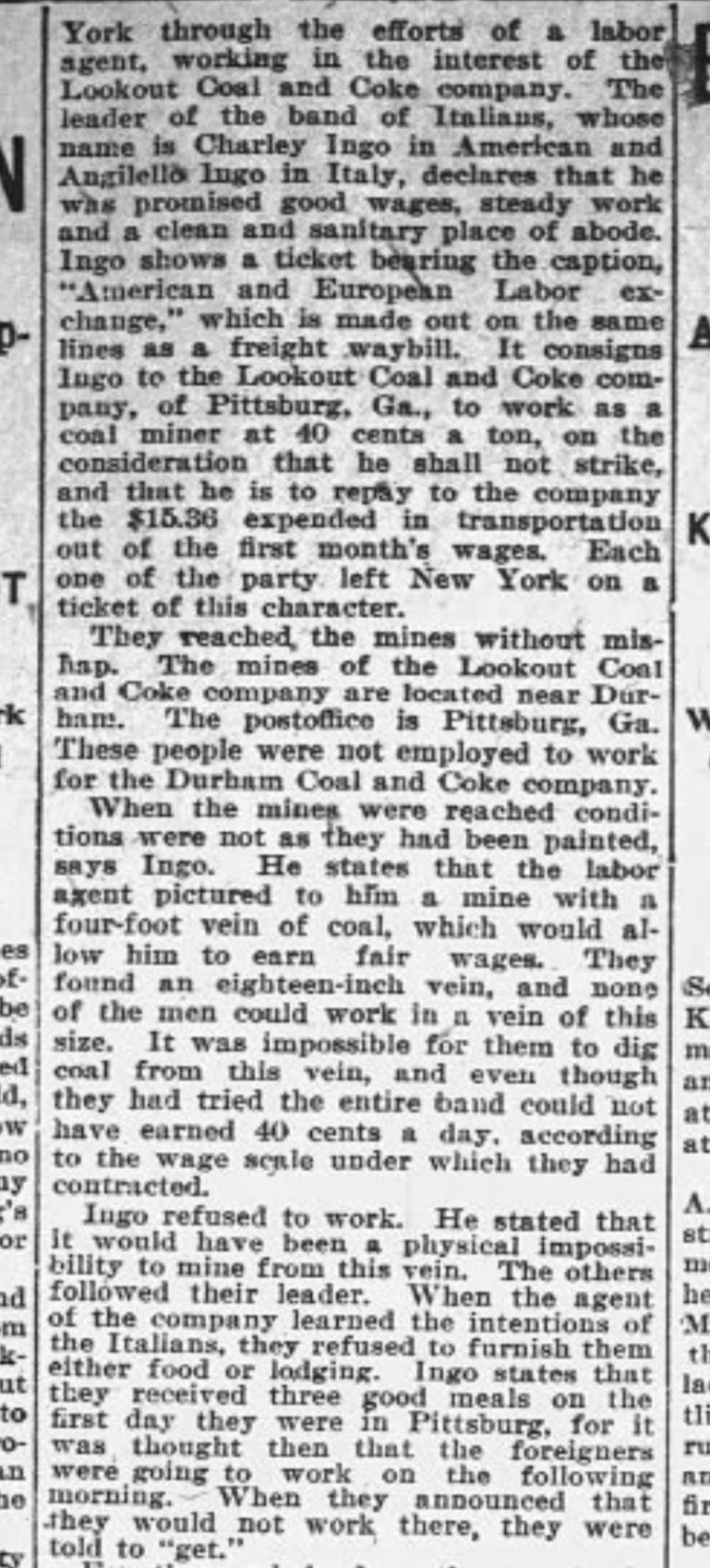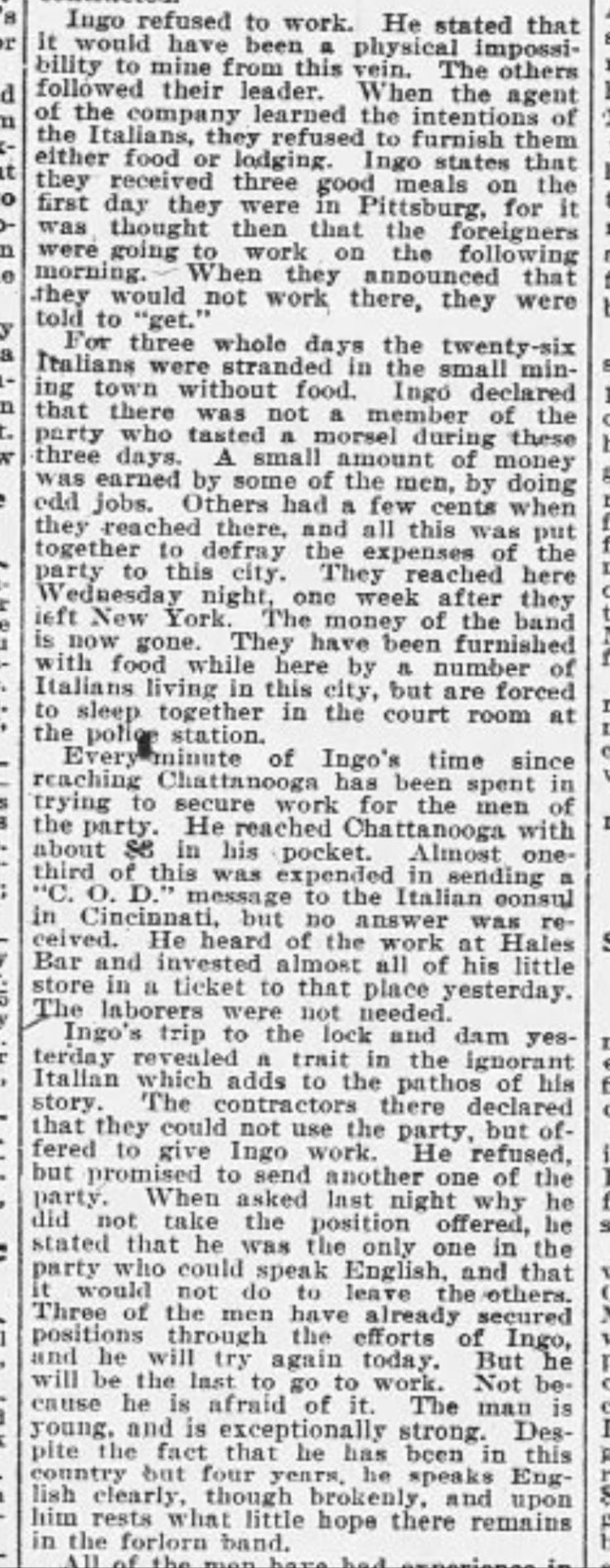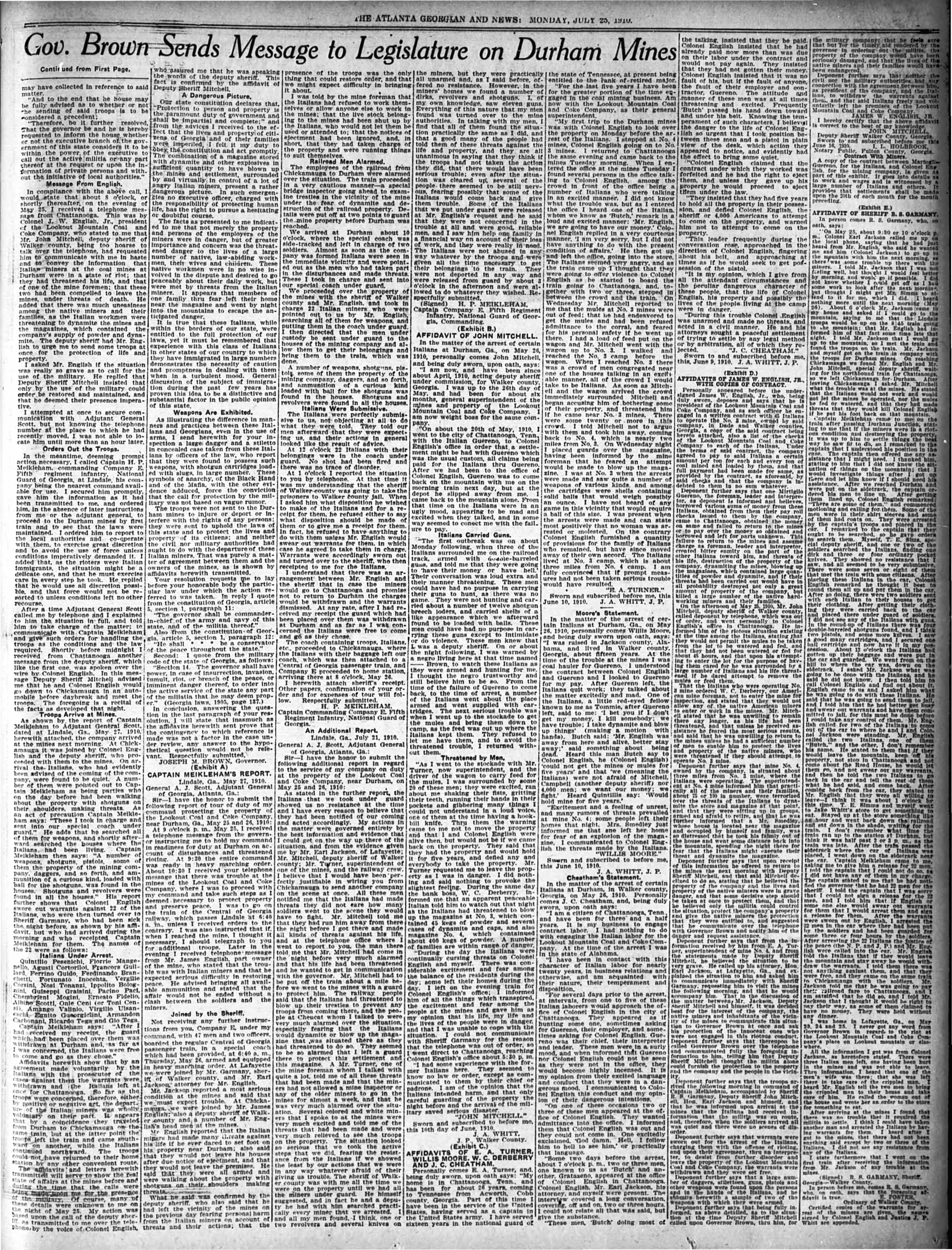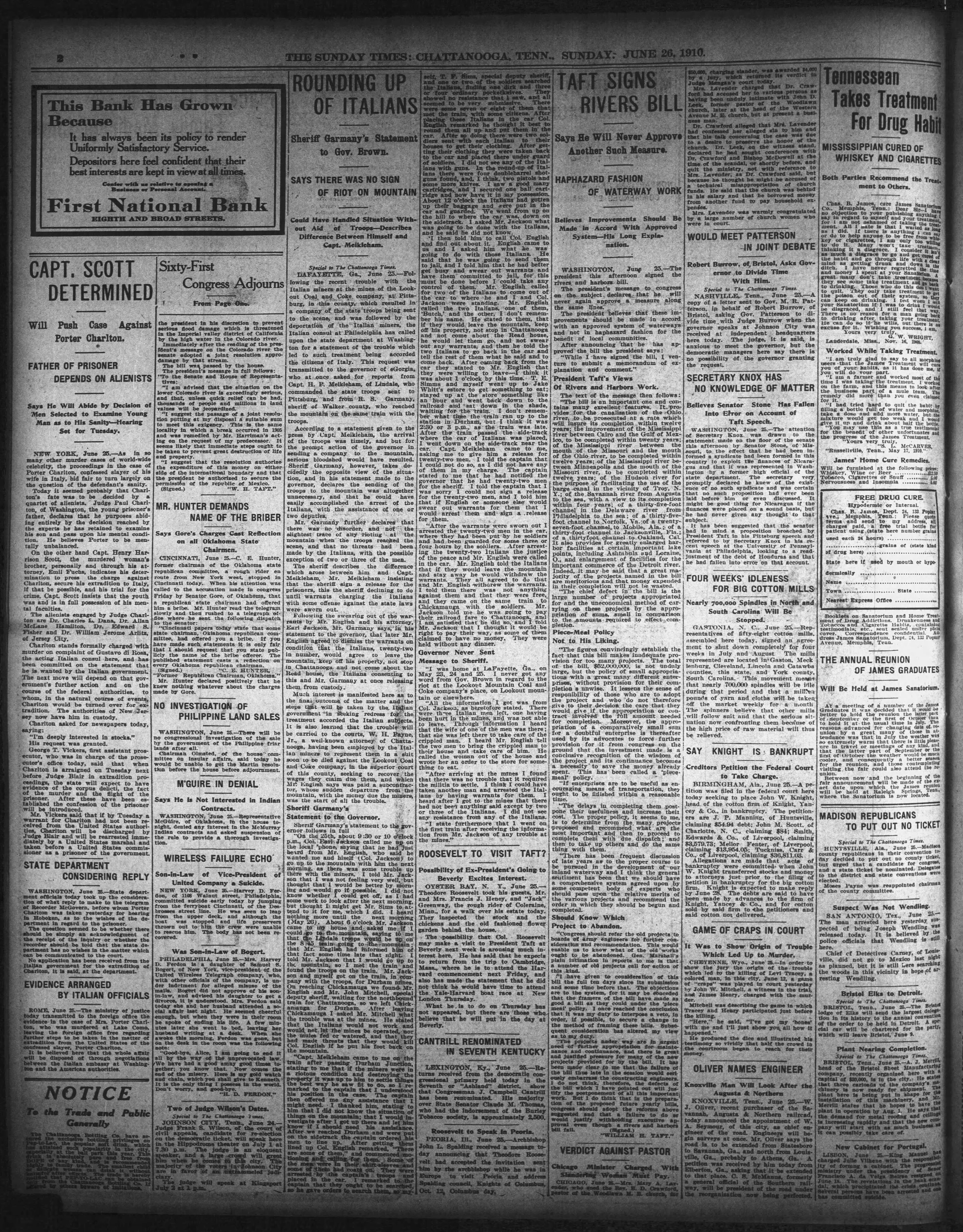Riots in Northwest Georgia
Chaos and anarchy erupt. Double-barreled shotguns and daggers are weapons of choice.
In the early evening of May 25, Walker County Deputy Sheriff John Mitchell received a call about a situation on Lookout Mountain that concerned him greatly. He had good reason to be concerned. On the mountain just three days earlier, a group of Italian immigrants wielding double barrel shotguns with “ball shells” surrounded him and threatened his life and that of the entire community.
I should point out that this story does not pertain to a recent event. In fact, it took place 112 years ago in a coal mining camp owned by Colonel J.W. English at Durham on Lookout Mountain. It is a wonderful but forgotten bit of Georgia history that led to the Governor sending a militia company to end the unrest, followed by an international diplomatic inquiry, a demand from the Georgia House of Representatives for an investigation, and it became the scandal of Georgia's 1910 gubernatorial election.
Even in 1910, Walker County didn't lack for spectacle and intrigue.
There is not much written about North Georgia's coal mining history, but it was a staple industry up until the middle of the 20th century. Durham on Lookout Mountain in Walker County was the site of several mines. The coal mines in north Georgia were mined by convict labor after the civil war, which was a brutal form of cheap labor that was essentially slave labor. The practice ended in 1909, which left mine owners with a dilemma. It would cost far more to operate the mines without convict labor using prevailing wages.
Colonel J.W. English had a plan to solve his labor problems at Lookout Coal and Coke Company. Towards the end of 1909, he announced his plans to hire 400 immigrants as replacement for the convict labor and invest over $100,000 in his enterprise. A labor agent in New York City was hired to secure immigrant laborers from Italy and Hungary to come south to work for him.
In January, the first group of immigrants arrived. Things didn't go well. Their less than warm reception and the events that followed after a few days are described in the following excerpts.
For the full page articles like the first one below you may need to click the image then zoom in to read them.
By march, things were looking up and Colonel English decided to only use Italians. Though he did have a ominous incident with some Sicilian miners described below in a Walker County Messenger article.
Despite six employees threatening his life, Colonel English remained optimistic that his experiment would succeed. That is, until the riots began. Upon retreating to the Chattanooga office of his mining company in the James building, Colonel English phoned a friend for help: Georgia Governor Joseph Mackey Brown, son of Civil War Governor Joe Brown. He got the governor around 8:30. Because Deputy Sheriff Mitchell was too hoarse to talk to the governor, English relayed his request. To end the anarchy on Lookout Mountain, he requested the governor activate the nearest state militia. Gov. Brown acknowledged the serious nature of the situation, called the commander of the closest company in Rome and told him to deploy to Chickamauga and Durham to restore order and enforce the law.
The company boarded the first train the following morning led by Capt. Melkleham. On arrival the- Italians, who had evidently been advised of the coming of the company, were found to be quiet. A number of them were pointed out to Captain Melkleham. After searching for weapons there, he subsequently searched the houses where Italians lived. Captain Melkleham then says: "A number of weapons, shotguns, pistols, some of them the property of the mining company, daggers, and so forth, and ammunition of a curious kind, loaded with ball for the shotguns, was found In the houses. Shotguns and revolvers were found In all the houses." His report further shows that Colonel English swore out warrants against 22 of the Italians but withdrew the warrants if the Italians left and promised never to return to Georgia. They did and were given rail passage to Chattanooga.
That should have been the end of it. Problem solved. End of story. However this being Walker County and it being an election year, this was just the beginning. The Durham mine troubles would become a key issue in the race for governor between incumbent Governor Brown and his predecessor, Hoke Smith. As a result there are differing accounts of what happened at the Durham mines.
The history of this forgotten event came to my attention while reading historical newspapers. If you are interested in learning more about our history, I cannot recommend giving it a try enough. Be careful and don't believe everything you read, but you're sure to discover plenty of interesting stories like this.













